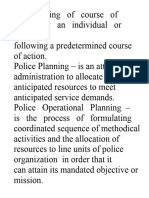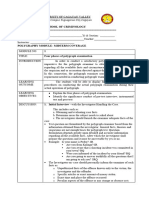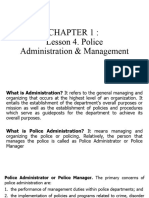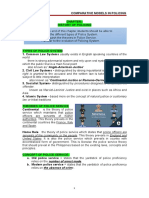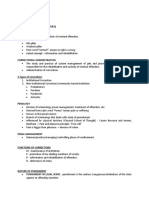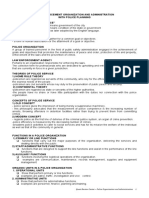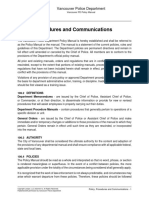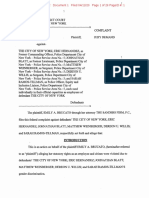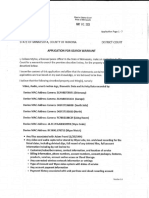100% found this document useful (1 vote)
1K views104 pagesPOALEA1
The document outlines the organization and administration of law enforcement in the Philippines, emphasizing an inter-agency approach involving various agencies such as the PNP, NBI, and PDEA. It details the principles of management, including planning, organizing, staffing, directing, controlling, and budgeting, as well as the historical evolution of policing in the country. Additionally, it discusses the legal framework governing the Philippine National Police and the roles of various authorities in maintaining public safety and order.
Uploaded by
lopezvsjcCopyright
© © All Rights Reserved
We take content rights seriously. If you suspect this is your content, claim it here.
Available Formats
Download as PPTX, PDF, TXT or read online on Scribd
100% found this document useful (1 vote)
1K views104 pagesPOALEA1
The document outlines the organization and administration of law enforcement in the Philippines, emphasizing an inter-agency approach involving various agencies such as the PNP, NBI, and PDEA. It details the principles of management, including planning, organizing, staffing, directing, controlling, and budgeting, as well as the historical evolution of policing in the country. Additionally, it discusses the legal framework governing the Philippine National Police and the roles of various authorities in maintaining public safety and order.
Uploaded by
lopezvsjcCopyright
© © All Rights Reserved
We take content rights seriously. If you suspect this is your content, claim it here.
Available Formats
Download as PPTX, PDF, TXT or read online on Scribd
/ 104















